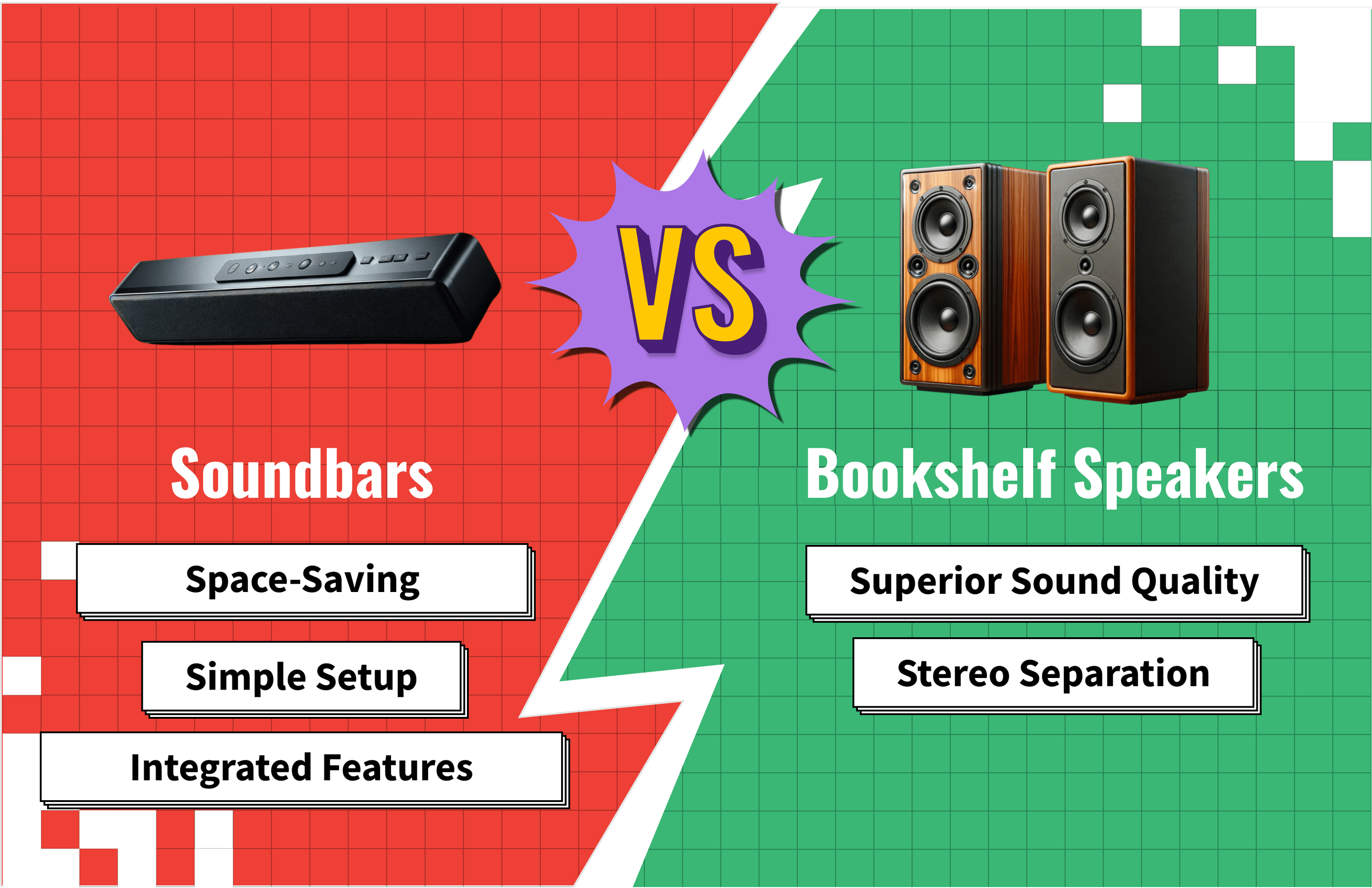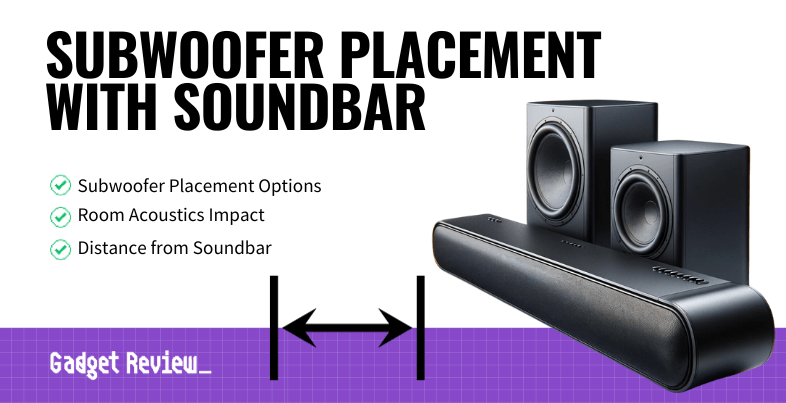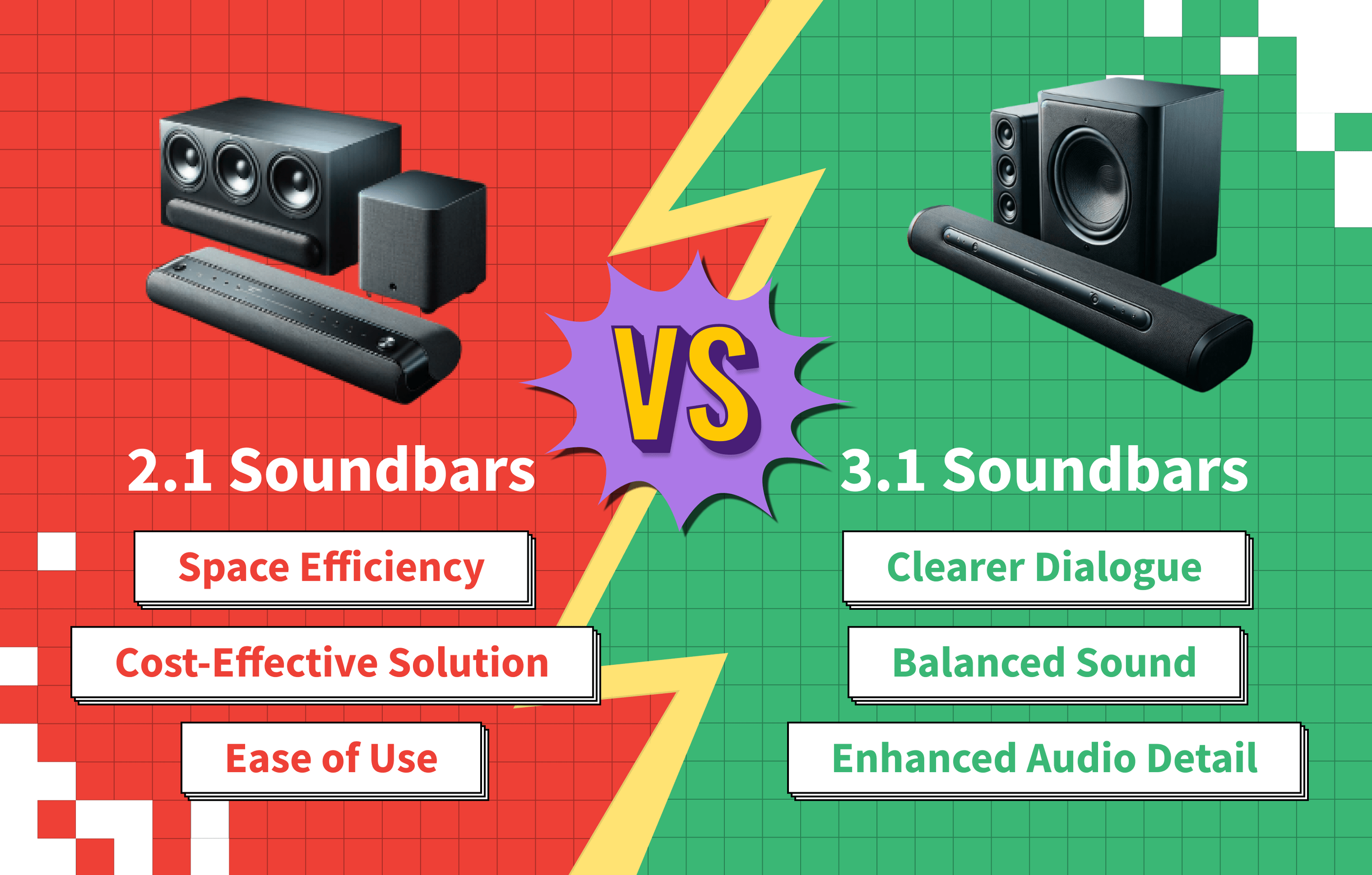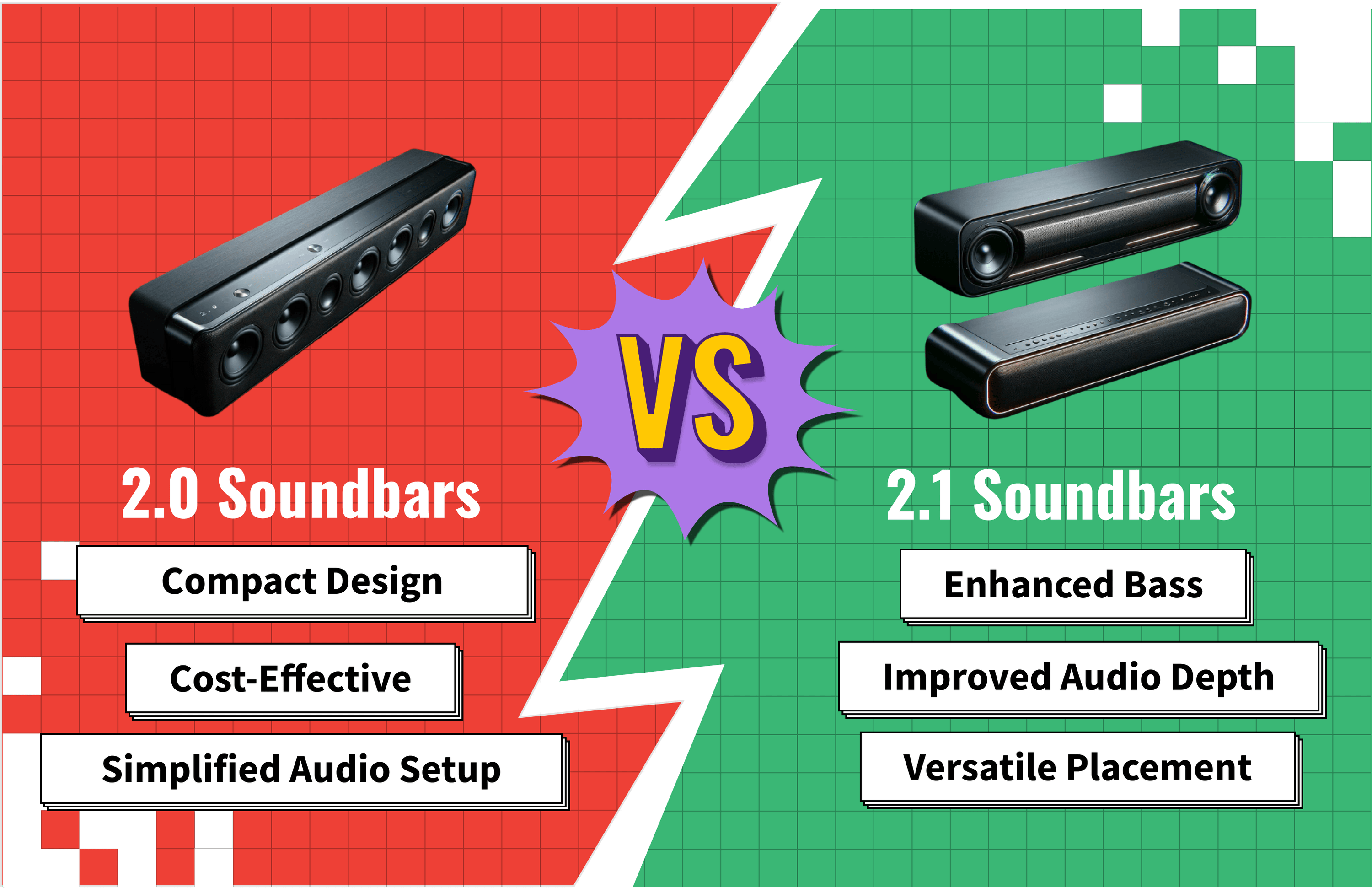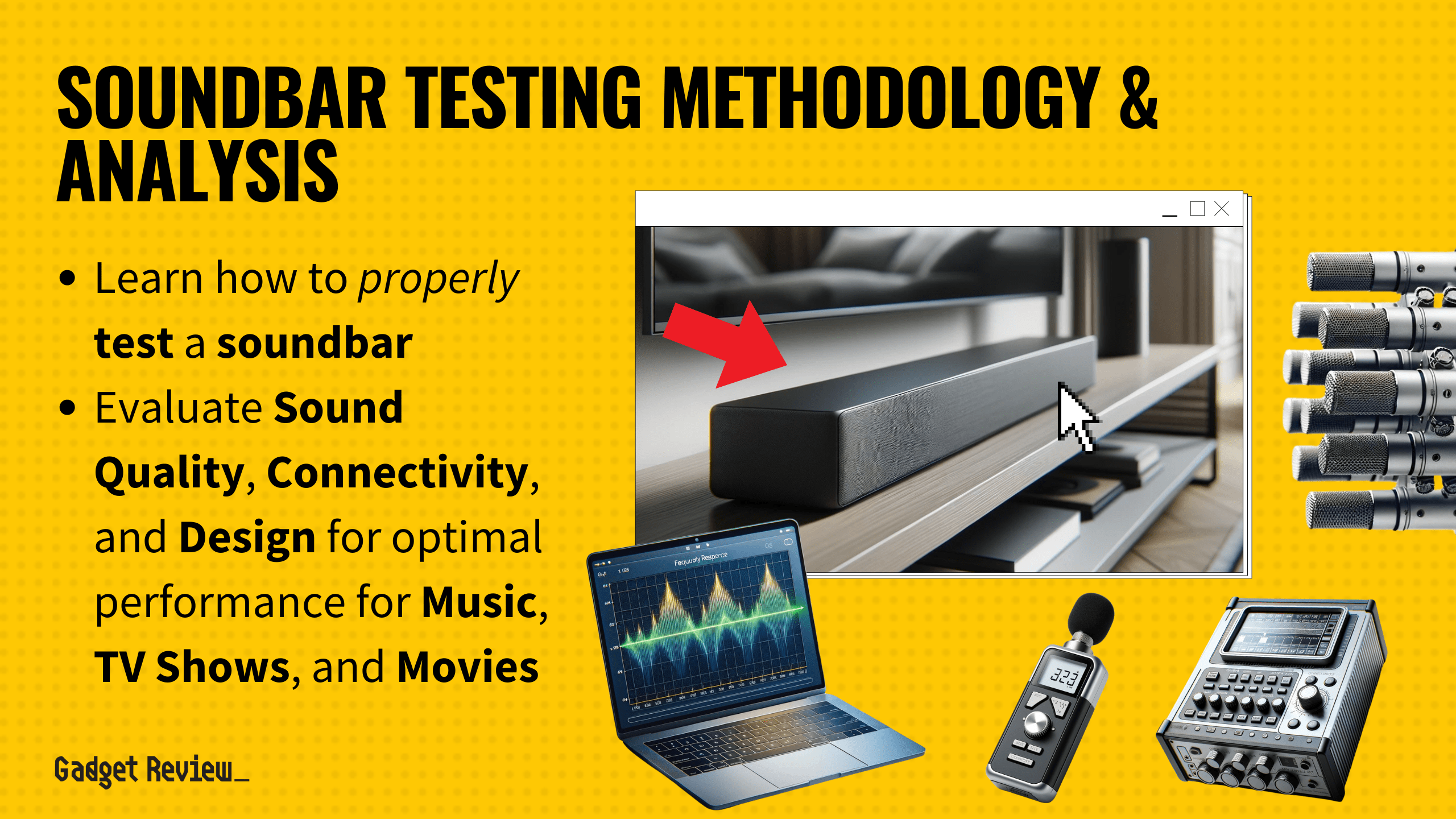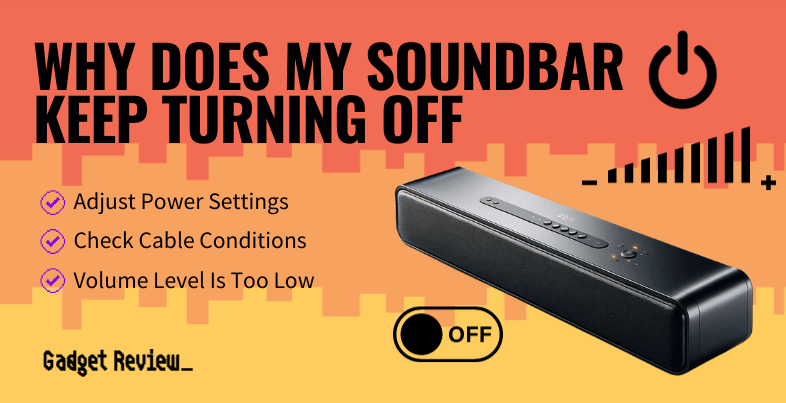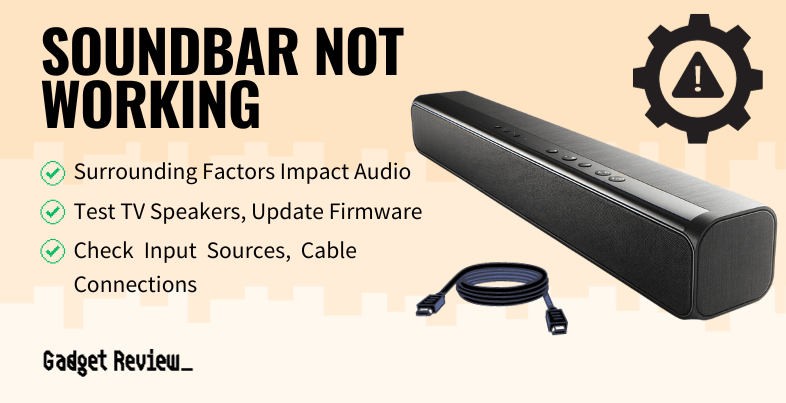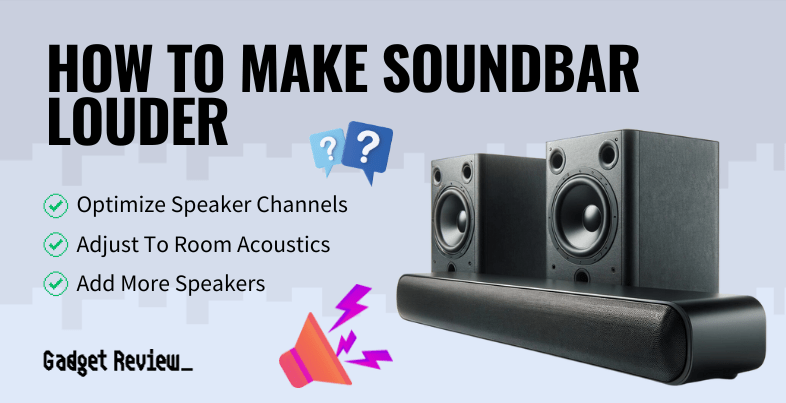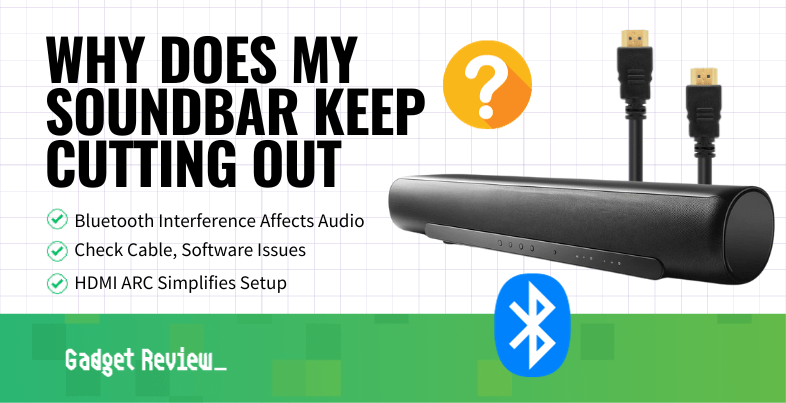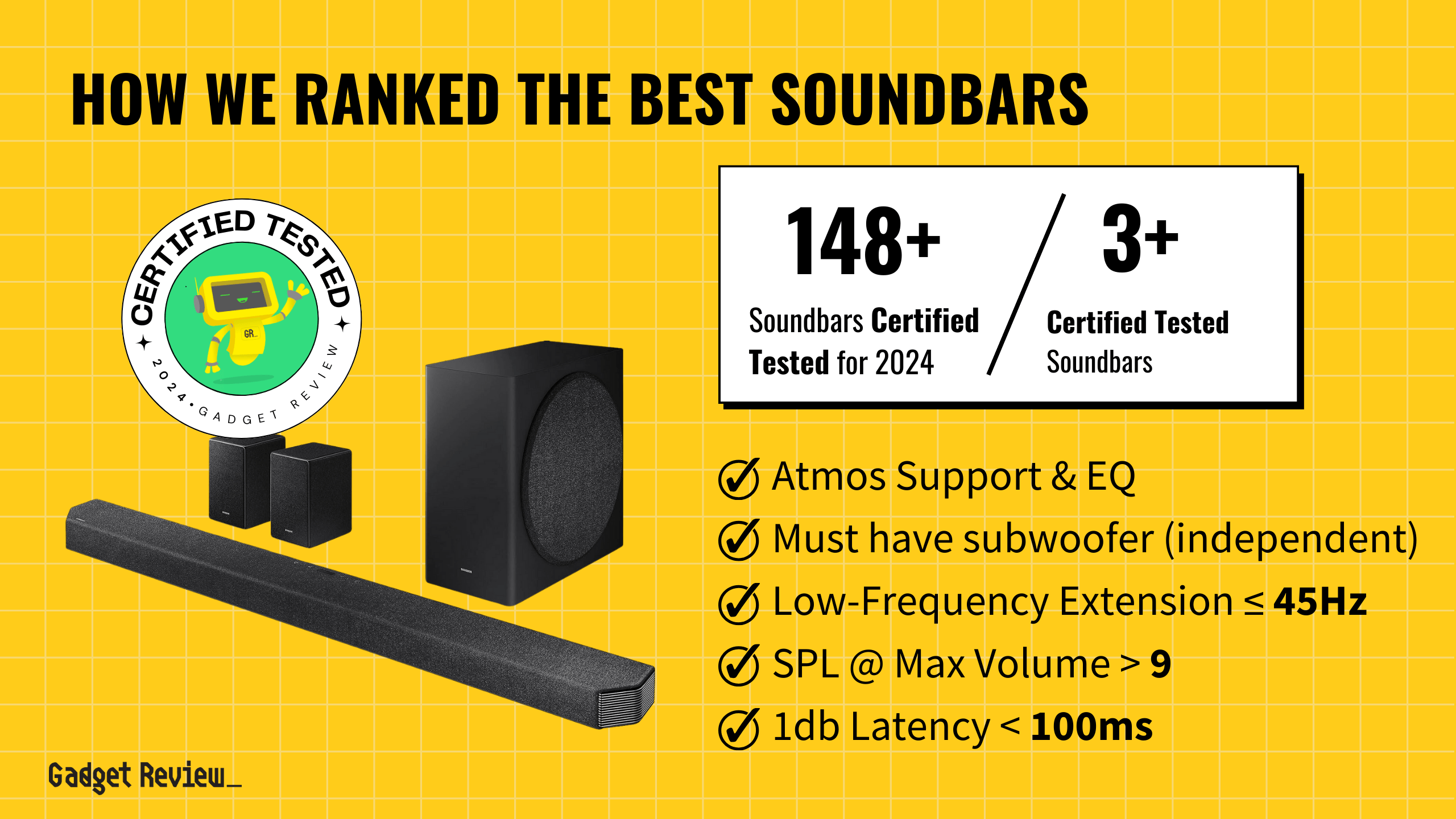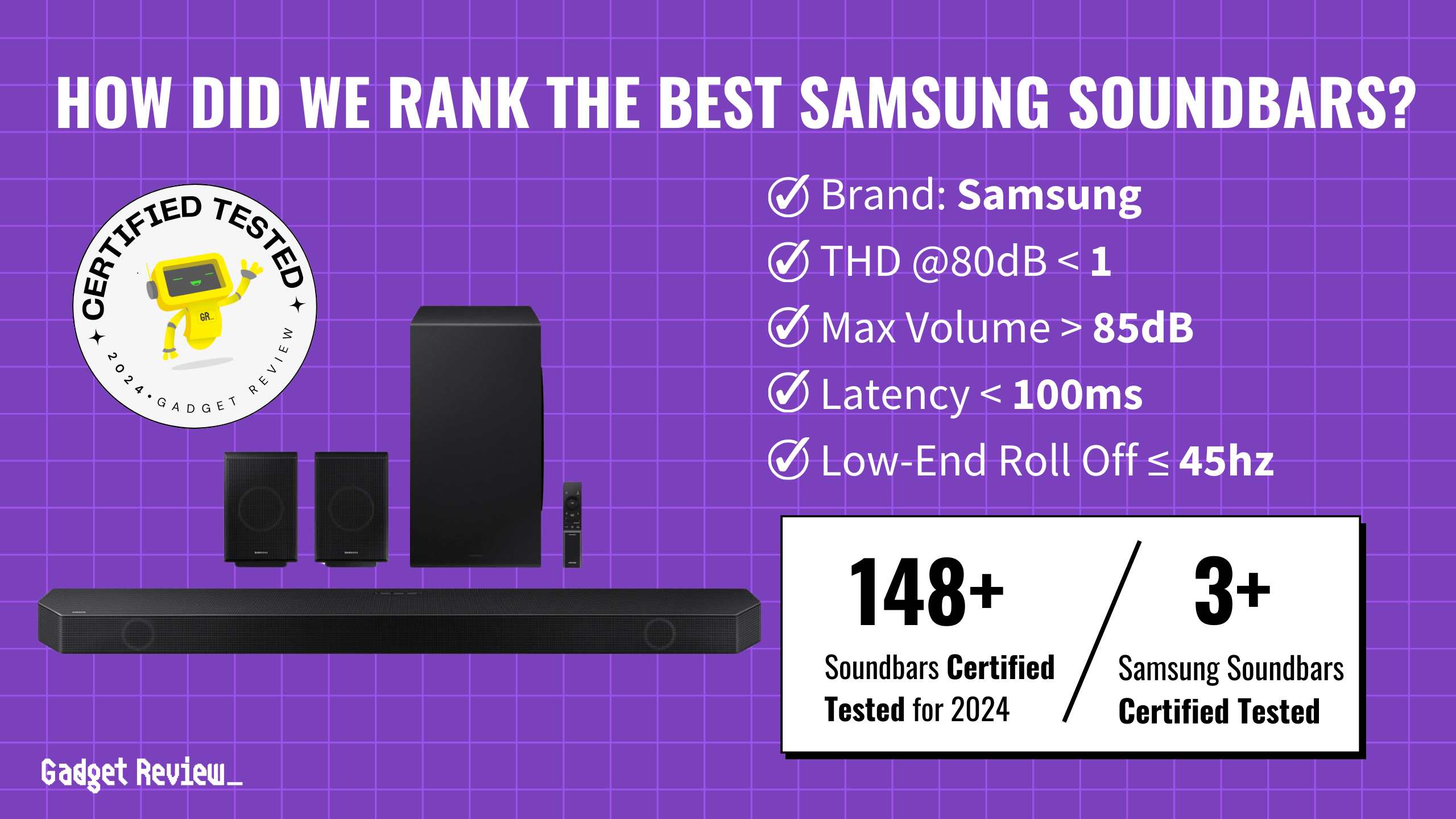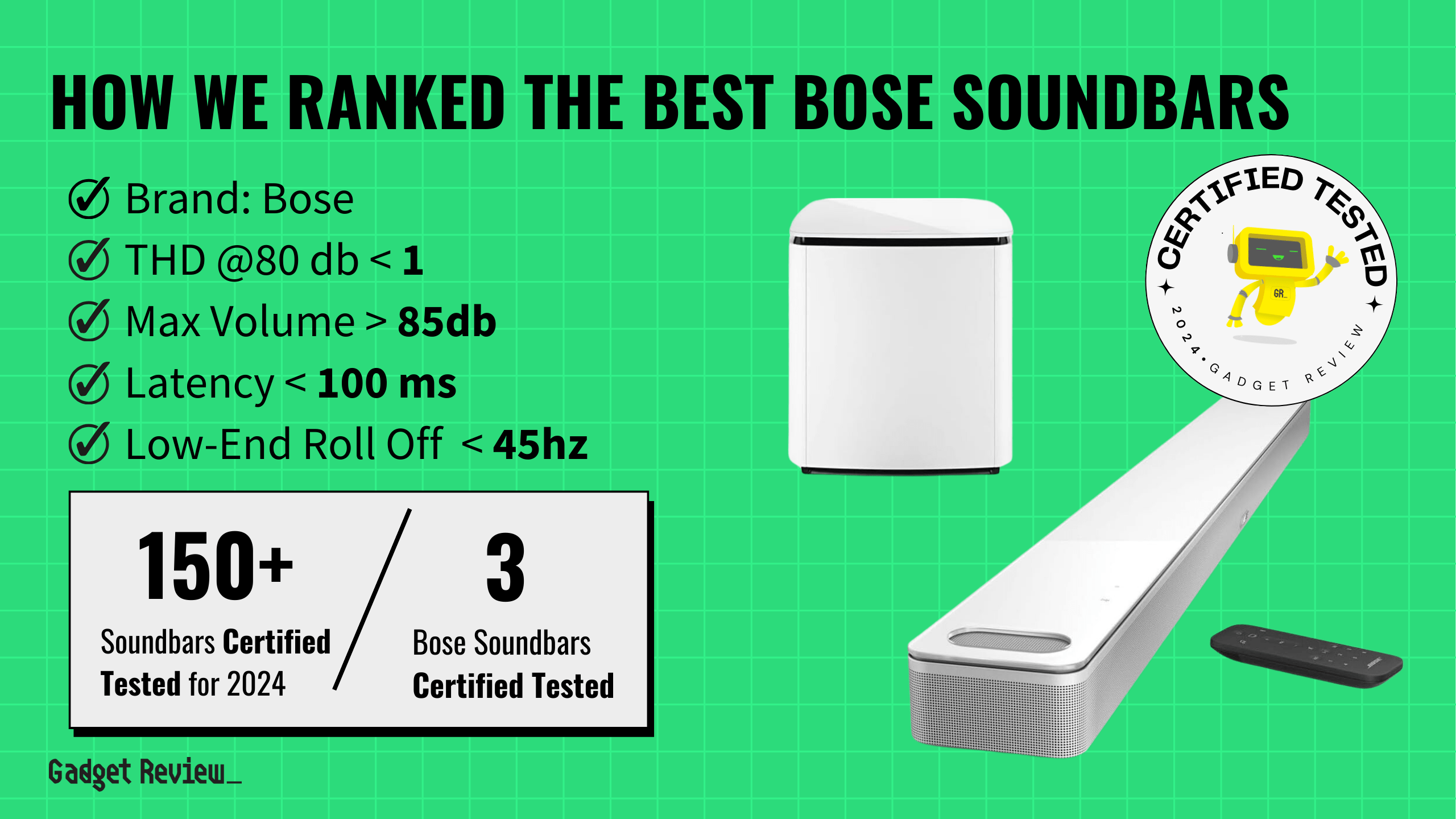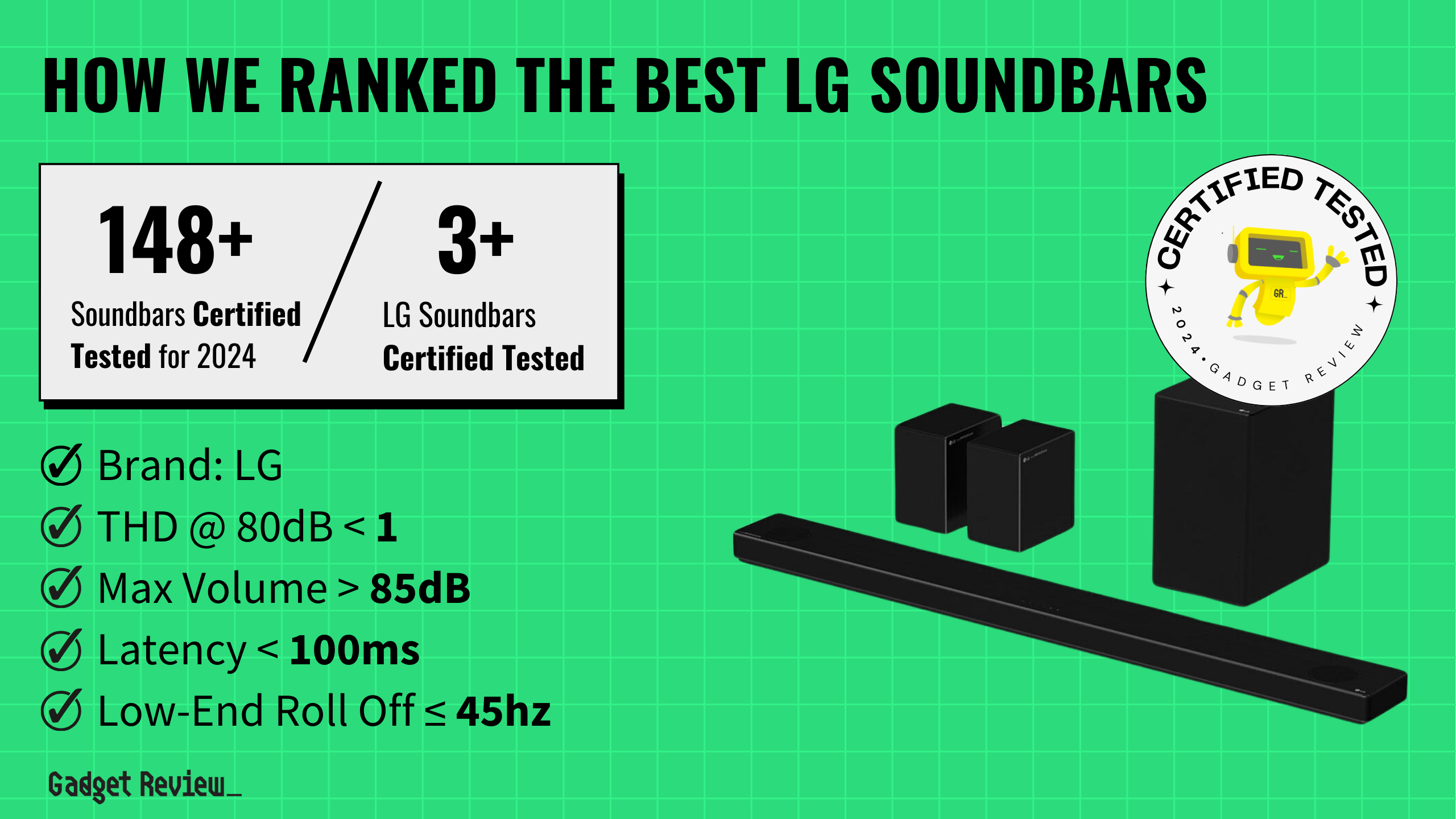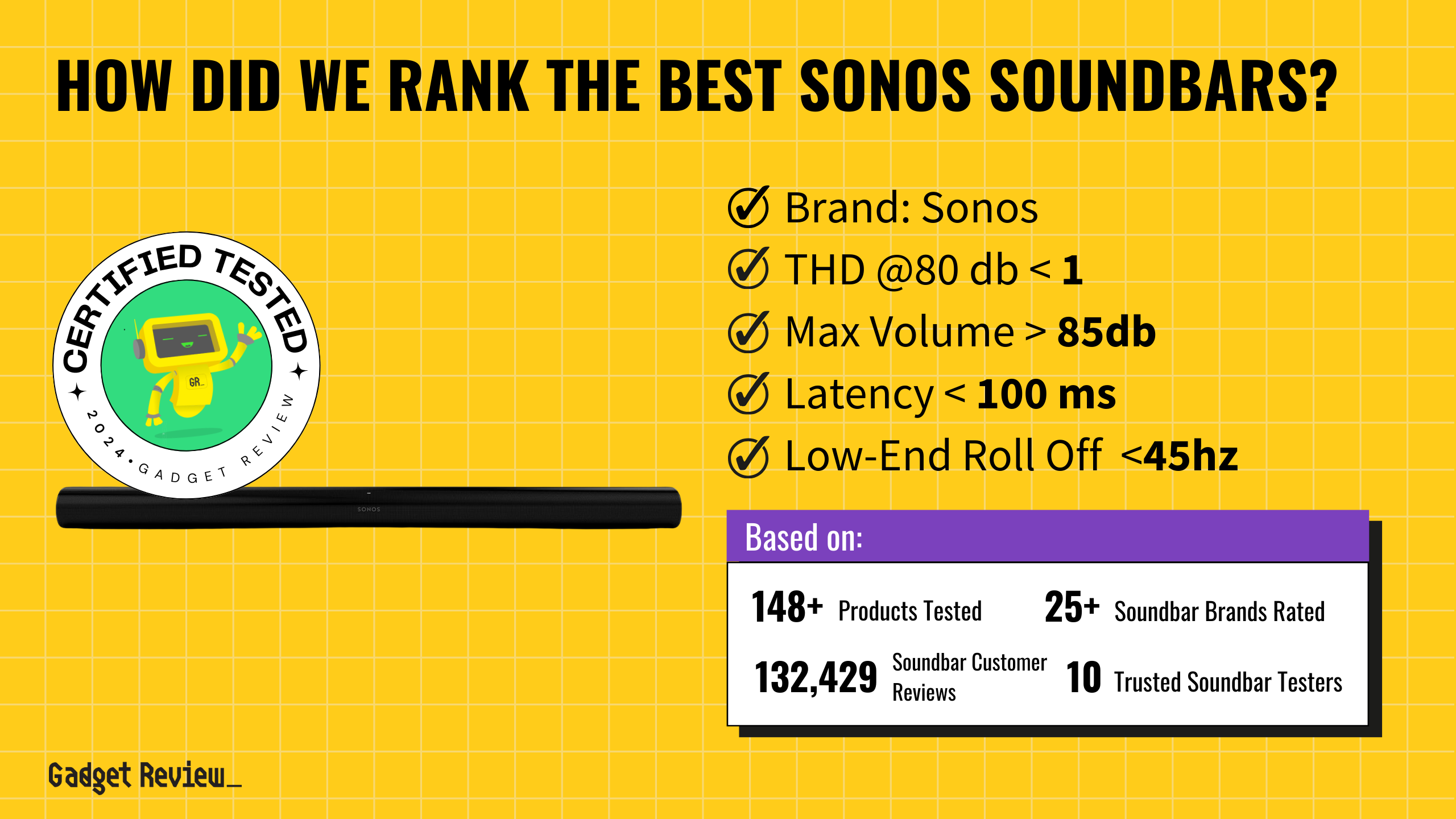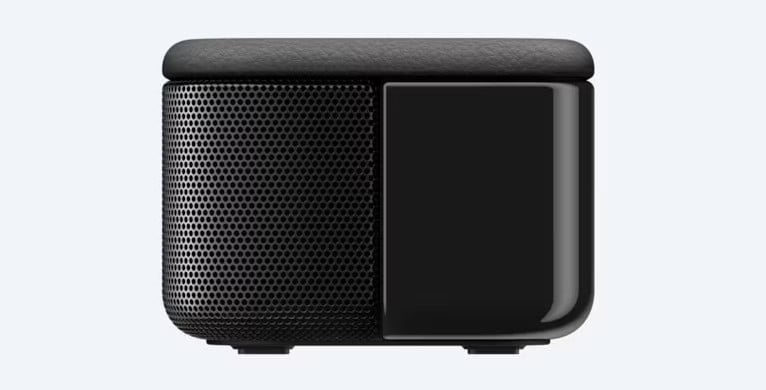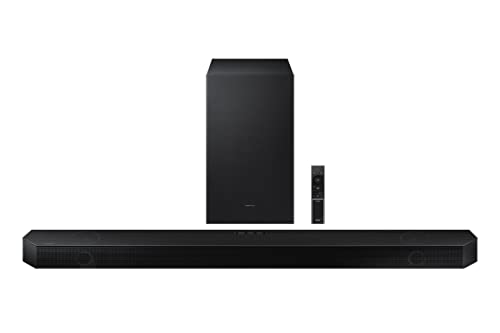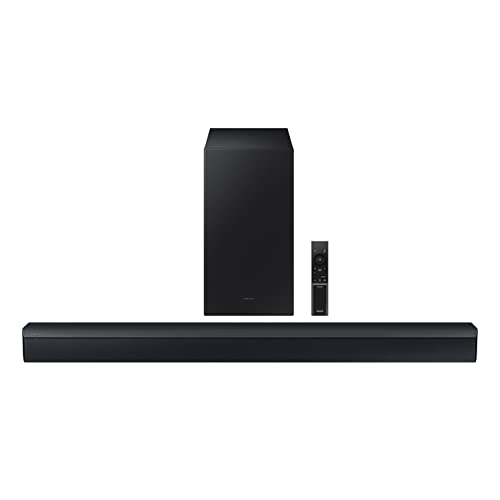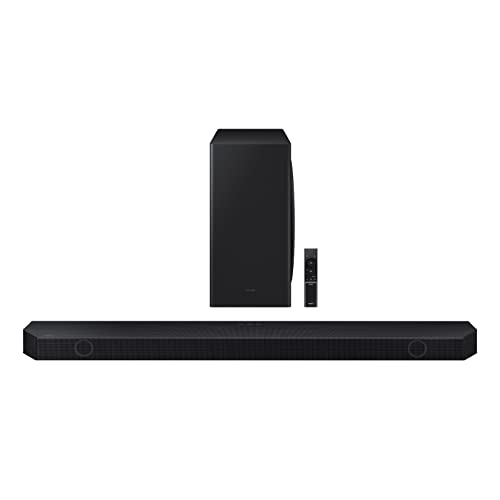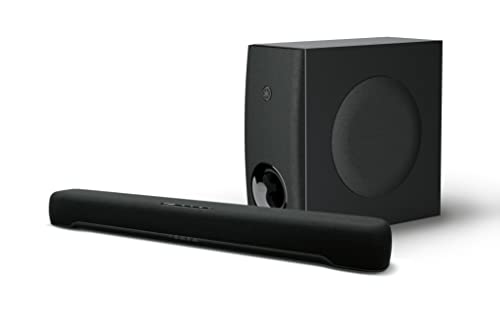One of the central debates about modern consumer audio products is soundbar vs bookshelf speakers. The best speakers for your system could be either, depending on your specific needs, so there are some things you’ll need to understand about both before making your decision.
Key Takeaways_
- Bookshelf speakers have more flexibility and versatility when it comes to placement and installation.
- Soundbars tend to be more feature-rich than bookshelf speakers, especially when it comes to connectivity and surround sound functionality.
- The higher price point of bookshelf speakers mostly has to do with their superior sound quality compared to soundbars.
While you’re at it, you may want to look into the differences between soundbar 3.1 vs. 5.1. You also might read up on soundbar vs. home theater.
Soundbars and bookshelf speakers are both popular options when it comes to consumer speakers, with a wide range of features and price points. They’ve got major differences, though, regarding functionality, sound, ease of installation, style, and connectivity, not to mention price.
Sound Quality
Bookshelf speakers generally have better sound quality than Soundbars, with larger speaker drivers and actual speaker cabinets. There are soundbars designed to offer premium sound quality, especially in 3.1 and 5.1 models.
insider tip
Most bookshelf speakers can be connected to most TVs, though a DAC may be required depending on connections available on both.
The latter is designed for surround sound and newer surround tech like Dolby Atmos, while most models include a wireless subwoofer for a better low-end response. Still, overall you’ll probably notice a slightly thinner sound with a lower noise floor.
Versatility & Connectivity
This one’s a little closer. Bookshelf speakers have the advantage of being placed wherever you prefer. They’ve also got the advantage of being very modular, meaning a pair of bookshelf speakers can easily be connected to a variety of different components and audio sources.
Lastly, while it’s not necessarily standard, many models come with connectivity options like Bluetooth or Smart TV integration- though it’s less common than with soundbars.
STAT: A typical frequency range for soundbars is 70hz to 19KHz. (source)
Conversely, soundbars are designed specifically to be connected to TVs and are limited in terms of installation location but often offer more connectivity options, such as HDMI or optical cables, and more advanced features like surround sound or models with dialogue boost.
warning
Soundbars generally have inferior sound to comparable bookshelf speakers and a narrower frequency range.
On the balance, bookshelf speakers have a slight advantage, but options like surround sound will require buying additional speakers, whereas even 3.1 soundbar models include a center channel speaker.
Price
Bookshelf speakers are generally more expensive than soundbars, which is in no small part due to their high-quality sound and larger drivers. Both soundbar and bookshelf speakers are available at a wide price range, but on the lower end, you may get a few more features- in terms of connectivity especially- out of soundbars. Soundbars have the edge here by a small margin.

